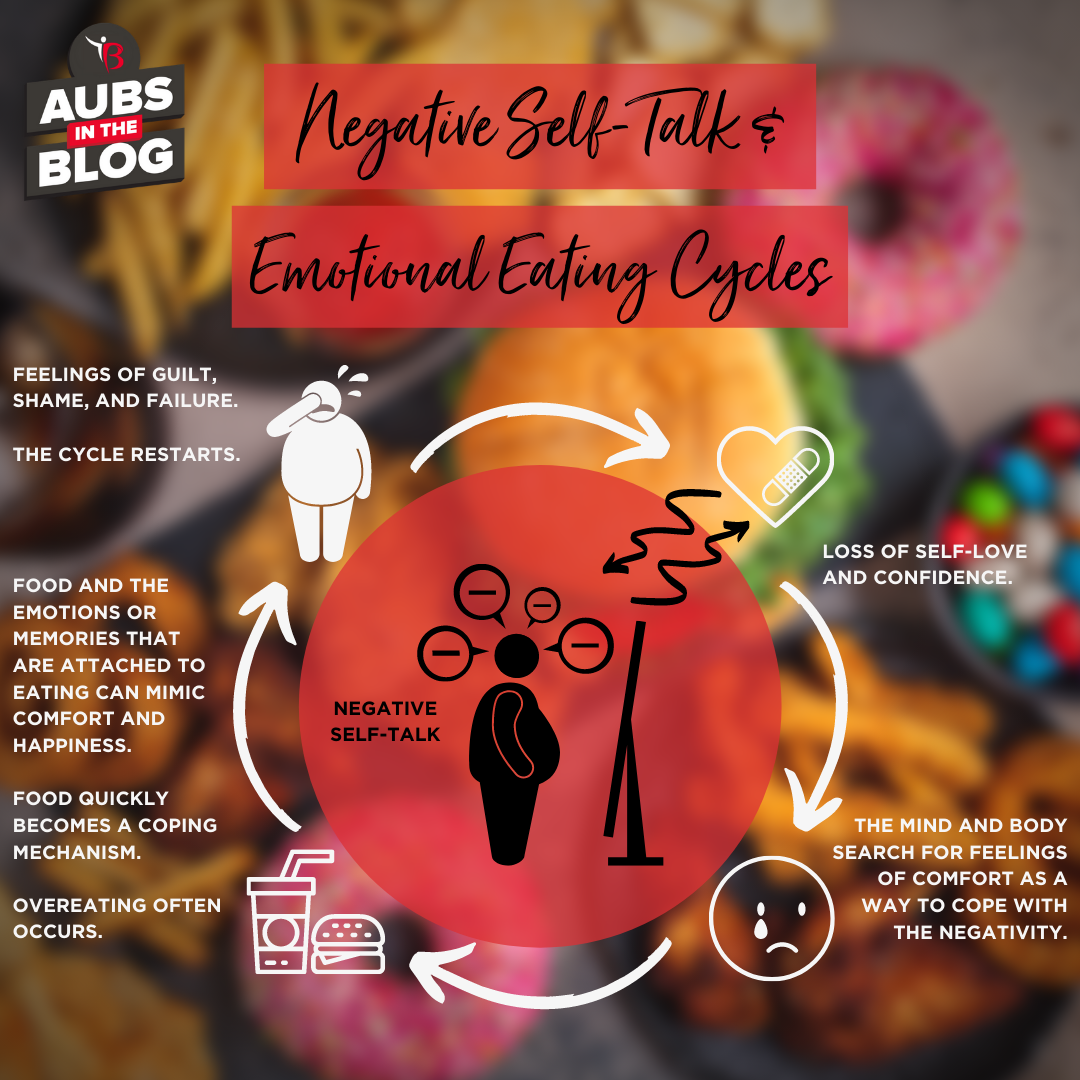Did you know evidence supports that there is a significant association between emotional discomfort and the management of those feelings by turning to food as a way to suppress or soothe ourselves during these times? Emotional eating and negative self-talk are not uncommon partners.
If you’ve found yourself trapped in the cycle of negative self-talk, self-fulfilling prophecies, and self-limiting beliefs, you may have also discovered that using food to cope often follows. Only then to find yourself back at square one feeling guilt, shame, and blame for the poor choices and habits you can’t seem to stop.
It begins in the mind. Maybe it starts with ideas that your self-worth is solely based on a certain weight or shape, maybe you’re using eating habits for weight loss or weight gain and a way to feel better about yourself…but when those expectations and self-set standards aren’t met, negative self-talk can become very easy to do.
The inner dialogue you have with yourself can limit your ability to not only believe in yourself and your capabilities, but also in reaching your greatest potential – – – igniting stress, anxiety, and symptoms associated with depression. This has been linked to decreased motivation and increased feelings of helplessness.
Eating comes into play when the mind and body begin to seek comfort as a result of these negative feelings and thoughts. Food becomes a coping mechanism and emotional eating becomes a habit.
This occurs as a result of the key neurotransmitter, aka chemical messenger, dopamine. Dopamine is responsible for triggering feelings of euphoria, bliss, motivation, and pleasure.
Now, certain foods actually encourage dopamine signaling in the brain – think salty, sugary, and fatty. These trick our body into IGNORING when we feel full and satiated, making it very difficult to stop once we’ve started indulging. The release of dopamine that is directly associated with these foods triggers increased levels of pleasure, acting like a high. This ultimately presents to the body like an addiction.
The cycle we experience with negative self-talk and emotional eating directly results from our brain remembering the actions that made us feel really awesome and good. So when we experience thoughts and situations that make us feel bad or down, our brain tells us to seek what made us feel good before, driving us to eat and indulge again. Repeat this process enough times and it will eventually become automatic.
